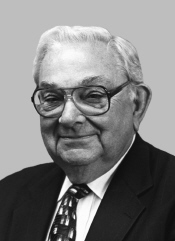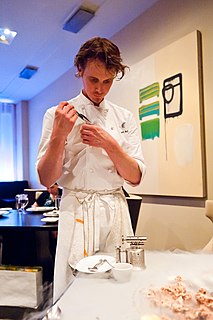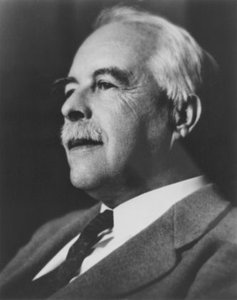A Quote by Ilya Prigogine
Now we see evolutionary trends in a variety of areas ranging from atomic and molecular physics through fluid mechanics, chemistry and biology to large scale systems of relevance in environmental and economic sciences
Related Quotes
If belief in evolution is a requirement to be a real scientist, it’s interesting to consider a quote from Dr. Marc Kirschner, founding chair of the Department of Systems Biology at Harvard Medical School:
“In fact, over the last 100 years, almost all of biology has proceeded independent of evolution, except evolutionary biology itself. Molecular biology, biochemistry, physiology, have not taken evolution into account at all.
The underlying physical laws necessary for the mathematical theory of a large part of physics and the whole of chemistry are thus completely known, and the difficulty is only that the exact application of these laws leads to equations much too complicated to be soluble. It therefore becomes desirable that approximate practical methods of applying quantum mechanics should be developed, which can lead to an explanation of the main features of complex atomic systems without too much computation.
I took biology in high school and didn't like it at all. It was focused on memorization. ... I didn't appreciate that biology also had principles and logic ... [rather than dealing with a] messy thing called life. It just wasn't organized, and I wanted to stick with the nice pristine sciences of chemistry and physics, where everything made sense. I wish I had learned sooner that biology could be fun as well.
It is now widely realized that nearly all the 'classical' problems of molecular biology have either been solved or will be solved in the next decade. The entry of large numbers of American and other biochemists into the field will ensure that all the chemical details of replication and transcription will be elucidated. Because of this, I have long felt that the future of molecular biology lies in the extension of research to other fields of biology, notably development and the nervous system.
It is ... a sign of the times-though our brothers of physics and chemistry may smile to hear me say so-that biology is now a science in which theories can be devised: theories which lead to predictions and predictions which sometimes turn out to be correct. These facts confirm me in a belief I hold most passionately-that biology is the heir of all the sciences.
As an adult I discovered that I was a pretty good autodidact, and can teach myself all kind of things. And developed a great interest in a number of different things from how to build a street hot rod from the ground up to quantum mechanics, and those two different kinds of mechanics, and it was really in the sciences, quantum mechanics, molecular biology, I would begin looking at these things looking for ideas, but in fact you don't read it for ideas you read it for curiosity and interest in the subject.





































